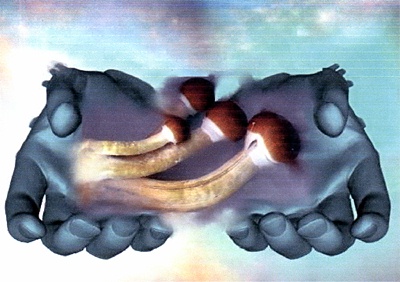All Nonfiction
- Bullying
- Books
- Academic
- Author Interviews
- Celebrity interviews
- College Articles
- College Essays
- Educator of the Year
- Heroes
- Interviews
- Memoir
- Personal Experience
- Sports
- Travel & Culture
All Opinions
- Bullying
- Current Events / Politics
- Discrimination
- Drugs / Alcohol / Smoking
- Entertainment / Celebrities
- Environment
- Love / Relationships
- Movies / Music / TV
- Pop Culture / Trends
- School / College
- Social Issues / Civics
- Spirituality / Religion
- Sports / Hobbies
All Hot Topics
- Bullying
- Community Service
- Environment
- Health
- Letters to the Editor
- Pride & Prejudice
- What Matters
- Back
Summer Guide
- Program Links
- Program Reviews
- Back
College Guide
- College Links
- College Reviews
- College Essays
- College Articles
- Back
Surviving War MAG
It was April 13,1999 and a beautiful day, but not one to enjoy. We were at war.Schools were closed and only one food store was open in our city of Ferizaj where20,000 people lived. Serbian police were everywhere with guns, looking to killinnocent people. I was only 13 years old and shaking, so scared I couldn'teat.
We were in a small cellar with 43 others when the Serbian armystarted to bomb near our neighborhood. A few minutes later I heard a noise andknew it was a bomb. As it came closer, it became very loud. It hit a house half amile from ours and our house shook for ten minutes as though there was anearthquake. I couldn't hear from the noise, and I was trembling. I couldn't stopmy tears.
My parents and cousin were packing bags with food since we haddecided to go to another village, Pleshina, where we heard it was safer. Womenand kids were walking down the road but the men had to go through the mountainsbecause the Serbs would kill them. One hundred women and children were walkingand there were Serbian police all over. They looked at us and started laughing,and one of them said: "Your country is ours now, and we won't stop the waruntil every Albanian is out of the country."
Halfway to Pleshina,they started to shoot at us from the mountains. We ran and I could hear kidscrying. As I looked back, my mom wasn't there. I started crying and looking forher when my cousin grabbed my hand and said, "Come on, run!" My mom wasthe last one because she couldn't run and also she had a big bag of food in herhand. I was crying from happiness that she was alive, though I didn't know if mydad and brothers were alive.
I thought we were going to die but as weapproached the village, they stopped shooting and no one was hurt. The villagewas very quiet; everyone was inside. They had heard the bombing and were alreadyin their cellars just in case.
When we got to the village, one man camefrom his house and explained that he had room for 40 people and that we couldstay there until it was safe to go back to our city. He and his wife wereextremely nice and made us dinner, treating us like family. The rest of our groupwent to other houses that had extra room and enough food.
After twodays my dad, brothers and cousins arrived, and we stayed three more days. Then wedecided to return to our city because they started to burn the houses and everyday things were getting worse. I could smell the smoke. Most of the people weregoing to refugee camps in Macedonia.
On April 18, we went back to our cityand saw they had burned a lot of houses, but they had only taken our furnitureand left our house empty. All our neighbors were gone, fleeing to anothercountry. That was a very sad day because we learned they killed four neighborswhen they wouldn't leave their houses. One week later we decided to leave to goto the camp in Macedonia, which was the closest country. When we got to the trainstation, there were a thousand people waiting for the train. The police were allaround, cursing and laughing. They knew we were leaving, and so they were happy.When the train came, we had to push so we could all fit. When everybody got in, Ilooked for my family, but I couldn't find them. They were all the way at the endof the train. Where I was standing, I couldn't see back because it was socrowded.
We arrived at the border an hour later and waited there for twohours until the Macedonian army brought buses to take us to the camp calledStankovec 2 that was controlled by the French army. They brought us food andeverything we needed. A week later Americans from the United Nations HighCommission for Refugees came to ask us if we wanted to go to the United States.They were taking refugees to make a better life, so we decided to come toAmerica.
We stayed in that camp for four months and met many new friends,including some from my country. We had fun even though we missed our country, oldfriends, our school and teachers, because for those six months, instead of goingto school, we hid in the cellar wondering how we would survive.
On August10, 1999 we arrived in Tucson where people from the Episcopal Church brought usto an apartment they had rented for us. They even found jobs for my parents. Ijust hope that no one goes through a war like I did. I feel sad because when Iwrite about my childhood, there is not much to say about fun, only about war.

Similar Articles
JOIN THE DISCUSSION
This article has 1 comment.

0 articles 0 photos 12292 comments